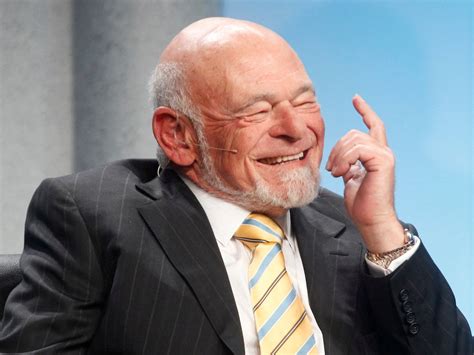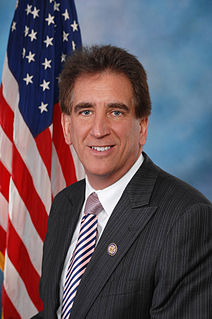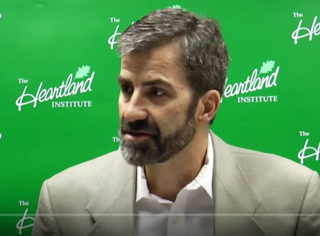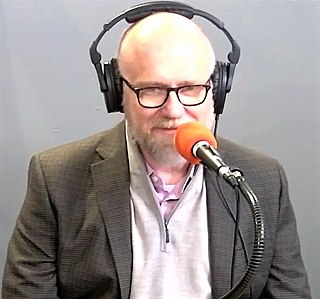Top 979 Rates Quotes & Sayings - Page 2
Explore popular Rates quotes.
Last updated on December 22, 2024.
If you put Canada into $1.5 trillion in debt and interest rates go up just 200 basis points, you cannot provide the services to 36 million people that were guaranteed to them in the social contract they have with Canada. That's a very, very scary prospect. You can't burden this economy with that much debt. The risk you take on is insurmountable. You have to assume for the next 50 years that rates don't go up? That's insane. That's irresponsible. That's stupid.
Student debt is crushing the lives of millions of Americans. How does it happen that we can get a home mortgage or purchase a car with interest rates half of that being paid for student loans? We must make higher education affordable for all. We must substantially lower interest rates on student loans. This must be a national priority.
I don't think it's possible for the Fed to end its easy-money policies in a trouble-free manner. Recent episodes in which Fed officials hinted at a shift toward higher interest rates have unleashed significant volatility in markets, so there is no reason to suspect that the actual process of boosting rates would be any different. I think that real pressure is going to occur not by the initiation by the Federal Reserve, but by the markets themselves.
It is a paradoxical truth that tax rates are too high and tax revenues are too low and the soundest way to raise the revenues in the long run is to cut the rates now Cutting taxes now is not to incur a budget deficit, but to achieve the more prosperous, expanding economy which can bring a budget surplus.
We're guessing at our future opportunity cost. Warrenis guessing that he'll have the opportunity to put capital out at high rates of return, so he's not willing to put it out at less than 10% now. But if we knew interest rates would stay at 1%, we'd change. Our hurdles reflect our estimate of future opportunity costs.
High tax rates in the upper income brackets allow politicians to win votes with class warfare rhetoric, painting their opponents as defenders of the rich. Meanwhile, the same politicians can win donations from the rich by creating tax loopholes that can keep the rich from actually paying those higher tax rates - or perhaps any taxes at all. What is worse than class warfare is phony class warfare. Slippery talk about 'fairness' is at the heart of this fraud by politicians seeking to squander more of the nation's resources.
Interest rates are going to go up because employment is going to go up. If employment goes up, then our apartments get filled. And if employment goes up, our office buildings get filled. The reality is that increased economic activity combined with increased interest rates is basically bullish for real estate.
We don't know what our health care costs are going to be. We don't know what our tax rates are going to be. We don't know what our interest rates are going to be. We don't know what our energy costs are going to be. All these uncertainties are being driven by the Government's agenda. What we really need to do is get Government to step back.
The benefits of a modest warming would outweigh the costs - by $8.4 billion a year in 1990 dollars by the year 2060, according to Robert Mendelsohn at Yale University - thanks to longer growing seasons, more wood fiber production, lower construction costs, lower mortality rates, and lower rates of morbidity (illness).
If the goal is to dramatically improve college completion rates, not college-going rates by itself but college completion, it's not just a college problem. We need a big focus on early childhood education. Our early childhood education system is pretty good in this country. Not enough students have opportunity. And, very discouragingly, they lose their advantage because they go to poor schools after that. So, let's focus on our babies.
We need a candidate who's going to be a fighter for freedom. Who is going to get up and make that the central theme in this race because it is the central theme in this race. I don't care what the unemployment rate's going to be. Doesn't matter to me. My campaign doesn't hinge on unemployment rates and growth rates.
I've always believed that a speculative bubble need not lead to a recession, as long as interest rates are cut quickly enough to stimulate alternative investments. But I had to face the fact that speculative bubbles usually are followed by recessions. My excuse has been that this was because the policy makers moved too slowly - that central banks were typically too slow to cut interest rates in the face of a burst bubble, giving the downturn time to build up a lot of momentum.
If you bring [tax] rates down, it makes it easier for small business to keep more of their capital and hire people. And for me, this is about jobs. I want to get America's economy going again. Fifty-four percent of America's workers work in businesses that are taxed as individuals. So when you bring those rates down, those small businesses are able to keep more money and hire more people.
We live in a global market and money's fungible and hedge fund private equity is looking for momentum plays, and there ain't no momentum plays in bonds, right? When the interest rates were spiking up or down, well they never really spike down they do spike up though. Something's got to happen, there's got to be motion, the dice has to be rolling on the board, and if it's not then they're not going to play because they're not going to get the adrenaline rush from looking at... you know, money markets fund interest rates or bond interests or whatever. It's got to be sexy.
Suicide rates have not slumped under the onslaught of antidepressants, mood-stabilizers, anxiolytic and anti-psychotic drugs; the jump in suicide rates suggests that the opposite is true. In some cases, suicide risk skyrockets once treatment begins (the patient may feel not only penalized for a justifiable reaction, but permanently stigmatized as malfunctioning). Studies show that self-loathing sharply decreases only in the course of cognitive-behavioral treatment.
Since 2008 you've had the largest bond market rally in history, as the Federal Reserve flooded the economy with quantitative easing to drive down interest rates. Driving down the interest rates creates a boom in the stock market, and also the real estate market. The resulting capital gains not treated as income.
We also need to reduce corporate tax rates. This applies to small, medium and large businesses. At 35 percent, we have the second highest corporate rates in the world. It restricts the growth of small enterprises that need to plow capital back into their businesses and forces companies and jobs to move overseas.
The art of banking is always to balance the risk of a run with the reward of a profit. The tantalizing factor in the equation is that riskier borrowers pay higher interest rates. Ultimate safety - a strongbox full of currency - would avail the banker nothing. Maximum risk - a portfolio of loans to prospective bankrupts at usurious interest rates - would invite disaster. A good banker safely and profitably treads the middle ground.
There's a tradeoff. Yeah, I lose the deduction that I really like, but my tax rate is going to go down, and I don't have to fill out that form anymore. It's much simpler, rates are lower, and that tradeoff has worked in many countries. Many countries have just cleaned house of all those exemptions in order to provide lower rates, and people buy it.
Budget deficits are not caused by wild-eyed spenders, but by slow economic growth and periodic recessions. And any new recession would break all deficit records. In short, it is a paradoxical truth that tax rates are too high today and tax revenues are too low, and the soundest way to raise the revenues in the long run is to cut the rates now.
There are several states that move from Karl Marx-like policies to Adam Smith-like policies and back again in a weekend. So for the states with huge volatility in their income tax policies over time, the differences in growth rates in those periods are really amazingly consistent with tax rates really mattering.
If the entire world decided to become vegan tomorrow, a whole host of the world's problems would disappear overnight. Climate change would decrease by 25 percent, deforestation would cease, rainforests would be preserved, our water- and air-quality would increase, life-expectancy rates would increase, and our rates of cancer would plummet, so certainly, with that one action of becoming vegan you are quite effectively making the world a better place.
Credit card companies are jacking up interest rates, lowering credit limits, and closing accounts - and people who have made timely payments are not exempt. So even if you pay off your balance - and that's tough when interest rates are insanely high - there's a good chance your credit limit will be slashed, and that will hurt your FICO score.
Arthur Laffer's idea, that lowering taxes could increase revenues, was logically correct. If tax rates are high enough, then people will go to such lengths to avoid them that cutting taxes can increase revenues. What he was wrong about was in thinking that income tax rates were already so high in the 1970s that cutting them would raise revenues.
If you let interest rates be freed, be set by the free market, they would rise dramatically. There would be a lot of broken furniture on Wall Street. It needs to be broken. The back of the speculative bubble would be broken and we could slowly heal the financial system. That's what I think we need to do but it's never going to happen because there's trillions of asset values dependent on the Fed continuing to suppress, repress interest rates and shovel $85 billion a month of liquidity into the market.
It is a simple logic truth that, short of mass emigration into space, with rockets taking off at the rate of several million per second, uncontrolled birth-rates are bound to lead to horribly increased death –rates. It is hard to believe that this simple truth is not understood by those leaders who forbid their followers to use effective contraceptive methods. They express a preference for ‘natural’ methods of population limitation, and a natural method is exactly what they are going to get. It is called starvation.
...It is statistically irrefutable that those American cities with stringent "gun control" (e.g. N.Y.C., D.C., Chicago, L.A.) have higher crime rates. It is also irrefutable that those 31 states which have made conceal carry of handguns easy for law-abiding citizens have correspondingly enjoyed significant drops in their crime rates.
Imagine if you had genuine, high-quality early-childhood education for every child, and suddenly every black child in America - but also every poor white child or Latino [child], but just stick with every black child in America - is getting a really good education. And they're graduating from high school at the same rates that whites are, and they are going to college at the same rates that whites are, and they are able to afford college at the same rates because the government has universal programs. So now they're all graduating.
Tax rates aren't everything with regard to incentives to work. I would probably work at a 100% tax rate next to a nude modeling studio. I'm joking, but you know what I'm saying. There's a lot more to it than just tax rates. It's economics that I do; I don't do nude modeling studio economics. People do respond to taxes.
The underlying strategy of the Fed is to tell people, "Do you want your money to lose value in the bank, or do you want to put it in the stock market?" They're trying to push money into the stock market, into hedge funds, to temporarily bid up prices. Then, all of a sudden, the Fed can raise interest rates, let the stock market prices collapse and the people will lose even more in the stock market than they would have by the negative interest rates in the bank. So it's a pro-Wall Street financial engineering gimmick.
Ironically, though our society of affluence brings safety and stability, it doesn't bring psychological health. As wealth goes up, suicide and depression rates tend to go up. I read one study that compared women in North America with women in Nigeria, and the group with the highest rates of depression was urban North American women, which is the wealthiest. Now, there are obviously huge stresses that come with poverty, but the poorer the society, the more collaborative people have to be.
In the 10 cities with the nation's highest obesity rates, the direct costs connected with obesity and obesity-related diseases are roughly $50 million per 100,000 residents. And if these 10 cities just cut their obesity rates down to the national average, all added up they combine to save nearly $500 million in healthcare costs each year.
Starting in the '80s or so, after the United States sharply cut its rates, other countries decided they better do it too, and here's how you do it: you just wipe out the exemptions, the deductions, the credits, the depreciation allowances. And people complain, "Oh my God, it's terrible," but you give them much lower rates and you give them an easier form to file, and people accept that tradeoff.























































